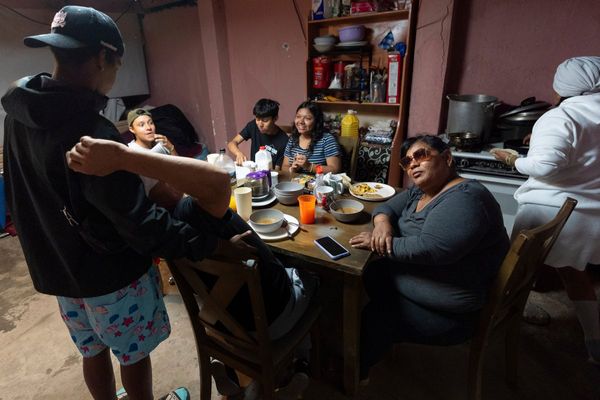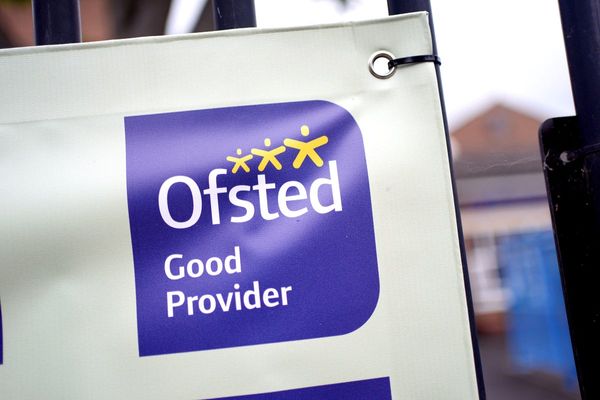
Data shows how difficult it is for a woman to start a business in the country. The vast majority of women in India don’t have assets in their name to leverage as collateral. Factors like complicated documentation and lack of technology also pose barriers for women. While the number of women-led MSMEs in India has jumped from 2.15 lakh to 1.23 crore in a decade, they account for only 20% of India’s 63 million MSMEs. As per the government’s data available from the Ministry of Micro, Small and Medium Enterprises, for proprietary MSMEs as a whole, males owned 79.63% of enterprises as compared to 20.37% owned by females.
Women entrepreneurs in India play a significant role in advancing the economic growth of the country. They collectively contribute 3.09% of industrial output and employ 10% of the total workers engaged in different economic activities in the country, according to ifc.org. Still, India ranks third-highest in the entrepreneurship gender gap across the world – only 33% of the early-stage entrepreneurs in India are women.
INHIBITIONS:
One key reason behind this is the financing need of an estimated 70% of women-owned businesses goes unmet. Women find it challenging to receive adequate financial support to run and scale their businesses because of pre-existing biases in the credit ecosystem and being “thin file".
“Women owning small and medium enterprises in India widely point to the lack of access to capital as the biggest constraint in running their businesses," Kalpana Ajayan said. Further, she said women entrepreneurs who obtained bank loans, the primary purpose of the loans is to finance fixed capital requirements. Women have a low appetite for growth expansion.
“Women entrepreneurs dominate in the Shishu loan category of the Mudra scheme," she added. Women’s lack of access to the movable and immovable property as collateral is another big impediment. The response of financial institutions to the MSME segment is largely gender-agnostic. Women entrepreneurs got only 5.2% of the total credit outstanding that all Public Sector Banks (PSBs) provided to MSMEs in 2021, the IFC report mentioned.
Rewa Juyal, 40, runs a boutique in Delhi since 2008. She told Mint that while starting her own business she did not receive loans from banks because of ‘zero’ collateral.
"When I started in 2008, banks refused to give me a loan because I didn't have collateral. I had to use up my savings," she said. Not just Juyal, several micro-women business owners cited collateral as their biggest issue in securing loans.
LAPSES IN THE SYSTEM:
Women empowerment at the entrepreneurial level is now considered a priority as it can generate substantial benefits to the Indian economic landscape. Deepak Aggarwal, Co-founder, Moneyboxx told Mint that budding women entrepreneurs from Tier 2 and 3 cities are lacking networking opportunities with other startups and experts in the same industry. According to Aggarwal, “Emphasis on qualitative and non-traditional credit assessment approaches, use of technology, product innovation, and further policy impetus is needed to improve access to credit for women entrepreneurs".
Another impediment is the lack of education and skills due to which women struggle to sustain their businesses. Kinara Capital CEO Hardika Shah said, “The country’s socio-economic setup presents several challenges for women entrepreneurs that can hold them back. For starters, there is limited access to education and training for women in general, which keeps the vast majority of them from entering the workforce".
Vikas Singh, CEO, co-founder, Sugmya Finance pointed out that social norms and stereotypes tend to prevent women from accessing mentorship and training in rural areas. Sing added, "Budding women entrepreneurs have limited access to the professional network because they are less exposed to the entrepreneurial environment. Due to this they have a low risk-bearing capacity and remain confined to gender-specific roles".
COVID IMPACT:
The Covid-19 pandemic put women-led micro businesses in India under immense pressure that exacerbated the wide socio-economic gap.
Vrinda Rathore's pickle factory in Rajasthan was among the thousands of businesses hit by Covid-19. Shortages in demand, lockdown, and closure of the factory, Rathore witnessed the worst phase of her business. However, the government's loan moratorium announcements and the ECLGS scheme boosted her confidence in rebuilding her business. "It's been 10 years to me in the pickle business, but not a single thing shook my confidence, unlike the pandemic. In the initial phase, I paid salaries to factory workers from my pocket. Thanks to the ECLGS scheme and loan moratorium my factory has stabilised now and is making profits," she said.
Prolonged lockdown and uncertainties shrunk the customer base and revenues plunged. Several micro women-led businesses changed their strategy to tide over the crisis. According to a survey conducted by the National Sample Survey Office, the number of women-led MSMEs in India fell by around 25% as a result of the pandemic. Many women entrepreneurs faced difficulties in assessing loans and other forms of financing.
GOVERNMENT’s SCHEMES:
Among the various schemes by the MSME ministry, the most popular among women-led MSMEs is the Micro Units Development and Refinance Agency (MUDRA scheme). While the MUDRA scheme is gender-agnostic, one big reason why it is particularly suited for women is that it offers collateral-free loans, since women usually find it difficult to come up with the collateral required for financing. Other women-centric schemes by the Centre are Prime Minister’s Employment Generation Program (PMEGP), Stand-Up India, Mahila UDYAM Nidhi scheme, Udyogini scheme, SIDBI Make in India Loan for Enterprises (SMILE), and Rural self-employment training institutes (RSETI).
However, several women entrepreneurs remain unaware of these schemes. Even those who are aware, lack clarity on specific features of these schemes. And the low uptake of products by women has led several banks to discontinue the schemes. “Overall, these government schemes have played a significant role in supporting and promoting women entrepreneurs in India by providing access to financing and other resources. However, some on-ground implementation issues hinder the uptake and efficiency of these initiatives. There is still limited awareness of the accessibility of these schemes among a significant section of women entrepreneurs. This is further complicated by complex application processes for some government schemes, which can be time-consuming and discourage some women entrepreneurs from applying," the CEO of Kinara Capital said.
SOLUTIONS:
There is an 'unseen bias' in our society that is linked to the social stigma and stereotypes that leads lenders to believe that women are not as capable of successfully running businesses as their male counterparts.
Kalpana Ajayan said that financial institutions can provide gender sensitivity training for relationship managers to be more effective in catering to women customers. Further steps, improving the technical knowledge of borrowers, adoption of differentiated assessment mechanisms of creditworthiness to appraise women’s repayment capacity better, and awareness campaigns of existing schemes for women entrepreneurs must be adopted.
"Women have the lowest NPAs and a better customer base. If Financial Service Providers (FSPs) are gender intentional it will be beneficial for them from a business lens," Ajayan added.
Kinara Capital's Shah suggested that women taking up leadership roles in the financial services sector can be pivotal to boosting access for women entrepreneurs, helping them secure loans and face fewer loan rejections.
"Women leading financial services can advocate for policies and practices that promote financial inclusion for women, which can help reduce loan rejection rates for women". Shah believes that women leaders mentoring and supporting other women in the financial services industry can help create a more inclusive and supportive environment for women.
Arun Nayyar, MD & CEO, NeoGrowth said that his NBFC financed 25% of loans to women-run businesses in FY 2023. The recently released NeoGrowth MSME Business Confidence Study highlighted the optimism of women entrepreneurs for 2023, with almost 80% of surveyed women business owners expecting to avail of a business loan for their various business needs this year.
According to Harshvardhan Lunia, Founder and CEO, Lendingkart, fintech has played a vital role in the country’s evolution in the last 10 years being a key driver of financial inclusion. "Most small and medium business owners who in the past were let down by conventional lending platforms, are now finally getting some much-deserved access to credit. The use of new-age technologies and digital tools such as AI, machine learning, and data analytics is helping fintech companies extend customized working capital solutions to the sector".








